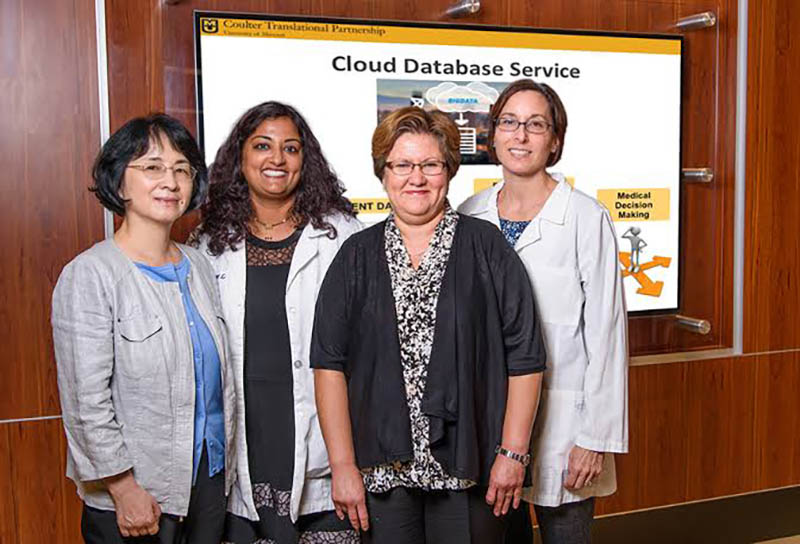July 12, 2022

Progressive neurological disorders such as Parkinson’s disease, multiple sclerosis and ALS can cause dysfunctions that impair speech and swallowing. Right now, tests to monitor these problems rely on clinician judgement, which can be subject to human error.
Now, researchers at Mizzou have devised a set of software that clinicians can use to more precisely measure the level of speech dysfunction, enabling earlier diagnosis and tracking of neurological disorders. The team was recently awarded a U.S. patent for this technology.
The software works with oral-diadochokinesis, or oral-DDK tests conducted by speech language pathologists, which require rapid repetition of speech-based syllables to assess speech impairments . Researchers developed a patient tool that records oral DDK signals. Then, a machine learning-based system to automatically analyze the data. The suite of tools also includes interactive visualization and editing software that allows clinicians to inspect and, if necessary, correct the automated results.
“Through these software, we compute several clinically relevant outcome measures to differentiate normal and abnormal function of the oro-motor system,” said Filiz Bunyak Ersoy, an assistant professor of electrical engineering and computer science.
Bunyak’s research focuses on image analysis, computer vision and machine learning. Yunxin Zhao, a professor of electrical engineering and computer science, is also in the research group, focusing on the speech recognition side of the DDK task. The work of her team enhanced the functionality of the software that Bunyak and her students developed.
“By counting the rate and recognizing the correctness of syllable productions or deriving other analytics from a person being tested, we can potentially automate the ‘normal’ versus ‘abnormal’ decision process,” Zhao said.
The technology is not yet licensed, but Bunyak said the goal is to make it available to hospitals and clinics to promote evidence-based medicine.
The medical aspect of the research is led by Dr. Teresa Lever from the School of Medicine and Dr. Mili Kuruvilla-Dugdale from the School of Health Profession. Dr. Lever and Dr. Kuruvilla-Dugdale are co-inventors in the patent and have been instrumental in design of these suite of tools.
“We are currently working toward demonstrating capabilities of this technology,” Bunyak said. “Dr. Lever’s preliminary test of the software with Parkinson’s patients show promising results toward early diagnosis and treatment monitoring.”
The work has been supported by funding from the MU Coulter Biomedical Accelerator Program.
Work with engineers who are developing real-world tools to help people. Learn more about electrical engineering and computer science at Mizzou.